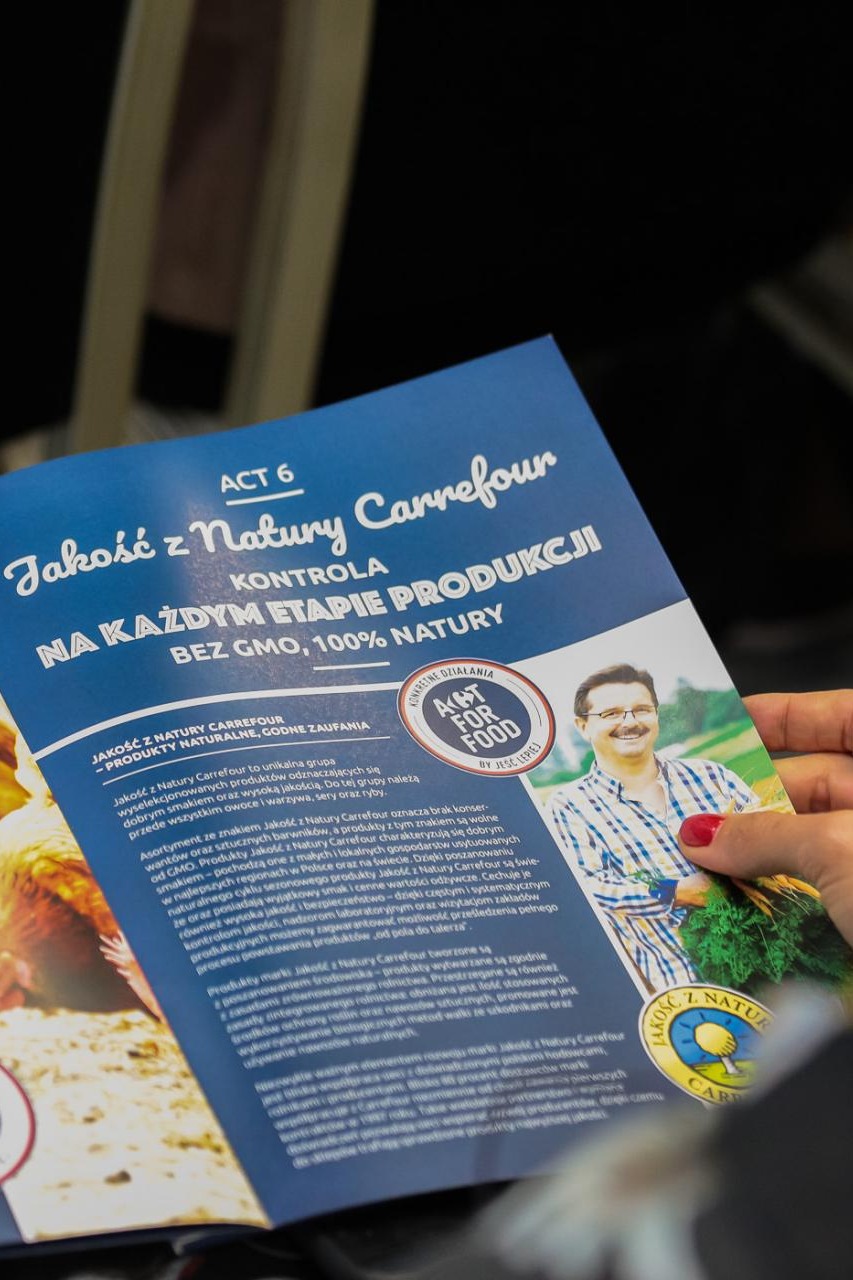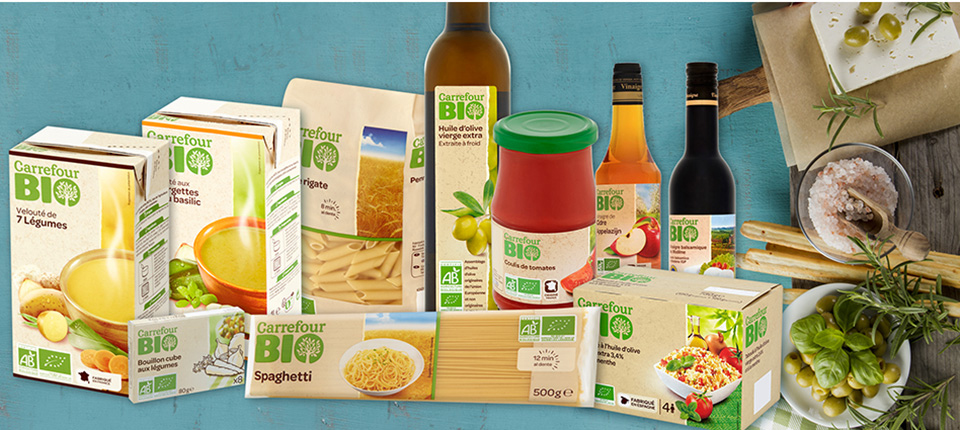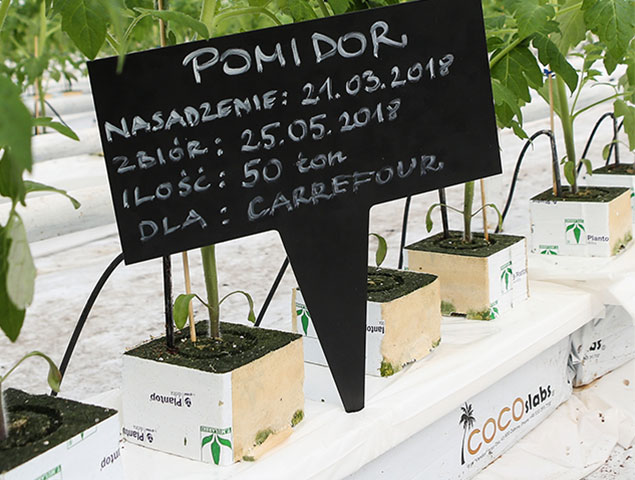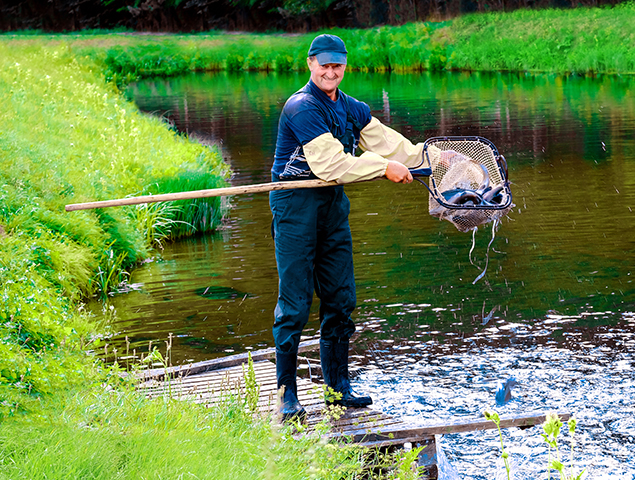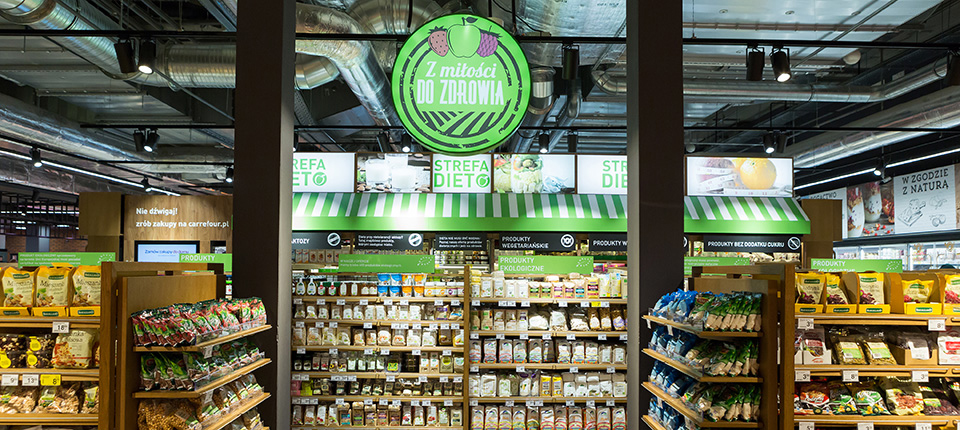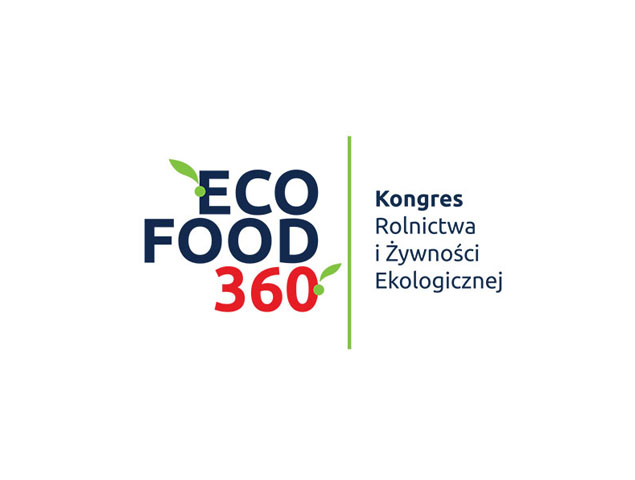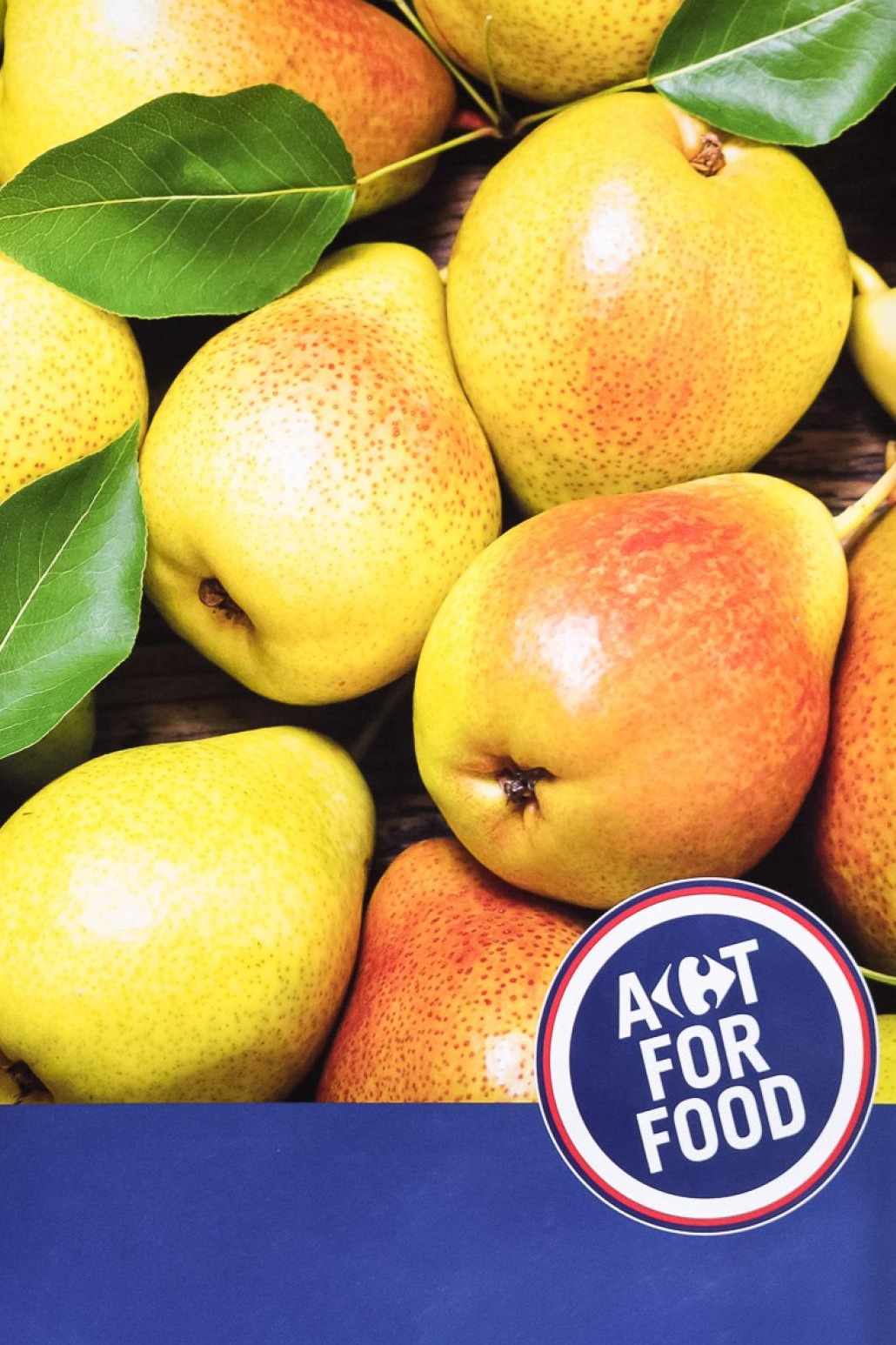

Food transition
Carrefour is willing to ensure its clients the highest shopping comfort and thus, aims to become the world leader of food transition. The company, which took notice of the rising expectations and knowledge of clients concerning healthy nutrition and a balanced diet, strives to guarantee for consumers a permanent access to food products of the highest quality at affordable prices.
Strategy of the Food Transition
Food transition is one of the strategic goals of Carrefour. The idea is to help consumers change their eating habits through education, and by ensuring them a wide access to information about the products sold in stores.
Carrefour’s ambition is to become the world leader of food transition for all, by offering clients – every day and everywhere- healthy food products of the highest quality at reasonable price.
The company strives to guarantee for its clients a permanent access to fresh fruits and vegetables from trustworthy and local suppliers, as well as to certified bio products at affordable price. Carrefour wants to democratize healthy and good quality food for all. This approach is an important element of the “Carrefour 2022” strategy, which has been announced by Carrefour Group in January 2018.
"We all play a significant role in the food transition. This is why we reinforce our cooperation with our employees, startups, associations and non-governmental organizations and we help Polish farmers, proposing support for the development of the ecological agriculture. Thanks to this, we can make the food transition really happen, not only on Carrefour shelves, but also on the plates of all Polish people."
Tareck Ouaibi
General Director of Carrefour Poland

The food transition is based on 7 pillars:
The food transition is conducted on the basis of key engagements:
- the implementation from 2018 of a plan for ecological agriculture in Poland
- the democratization of bio food,
- the promotion of local and regional products,
- the long-term support to farmers in their conversion to ecological agriculture
- the participation of the Carrefour Foundation for financing such projects.







